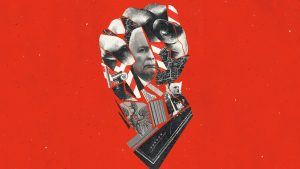Anne Applebaum in The Atlantic:
 On December 31, 1999, we threw a party. It was the end of one millennium and the start of a new one; people very much wanted to celebrate, preferably somewhere exotic. Our party fulfilled that criterion. We held it at Chobielin, the manor house in northwest Poland that my husband and his parents had purchased a decade earlier, when it was a mildewed ruin. We had restored the house, very slowly. It was not exactly finished in 1999, but it did have a new roof. It also had a large, freshly painted, and completely unfurnished salon—perfect for a party.
On December 31, 1999, we threw a party. It was the end of one millennium and the start of a new one; people very much wanted to celebrate, preferably somewhere exotic. Our party fulfilled that criterion. We held it at Chobielin, the manor house in northwest Poland that my husband and his parents had purchased a decade earlier, when it was a mildewed ruin. We had restored the house, very slowly. It was not exactly finished in 1999, but it did have a new roof. It also had a large, freshly painted, and completely unfurnished salon—perfect for a party.
The guests were various: journalist friends from London and Berlin, a few diplomats based in Warsaw, two friends who flew in from New York. But most of them were Poles, friends of ours and colleagues of my husband, who was then a deputy foreign minister in the Polish government. A handful of youngish Polish journalists came too—none then particularly famous—along with a few civil servants and one or two members of the government.
You could have lumped the majority of them, roughly, in the general category of what Poles call the right—the conservatives, the anti-Communists. But at that moment in history, you might also have called most of my guests liberals—free-market liberals, or classical liberals—or maybe Thatcherites. Even those who might have been less definite about economics certainly believed in democracy, in the rule of law, and in a Poland that was a member of nato and on its way to joining the European Union—an integrated part of modern Europe. In the 1990s, that was what being “on the right” meant.
More here.
